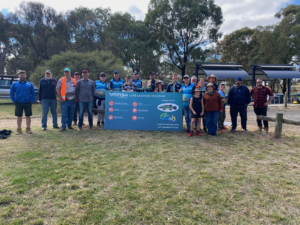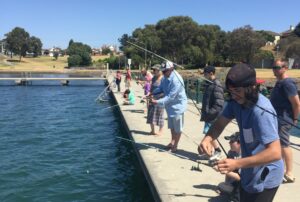January 31, 2022
Recfishers play a vital role in maintaining a healthy population of sharks, rays and other fish stocks. By understanding the different species and how to fish responsibly, you’re not only supporting fish populations but also increasing your own confidence and safety.
Shark Mates is all about discovering and promoting best practice in recreational fishing guidelines so Australia can lead the way in supporting our sharks and respecting our rays. The Shark Mates guidelines are based on the latest science and targeted research into the most effective handling and release techniques.
You can download the Shark Mates sharks & rays guide to safe and responsible fishing below. Some key points from the Shark Mates guidelines are:
- Use circle hooks instead of J-hooks to reduce the risk of injury and mortality injury and mortality following release.
- Use non-stainless hooks or corrodible hooks, that way if you are unable to remove the hook, it will likely fall off after a few weeks.
- Reduce the fight time.
- Keep the shark or ray in the water.
- Practice responsible photography, it is best practice to photograph the shark or ray while it’s still in the water.
If you have to take the animal out of the water during the release remember:
- Support the body, always keep the animal horizontal while lifting.
- Do not lift the animal by the tail.
- Reduce the amount of exposure, as a rule of thumb do not keep animal out of water more than 2 minutes.
Watch the video below to prepare for catching sharks or rays.
Shark Mates is all about supporting sharks, respecting rays and promoting safe and sustainable fishing.
Shark Mates is a collaboration between Monash University, VRFish, the Victorian Fisheries Authority and Flinders University and has been funded by the Australian Government through the Fisheries Research and Development Corporation (FRDC).








